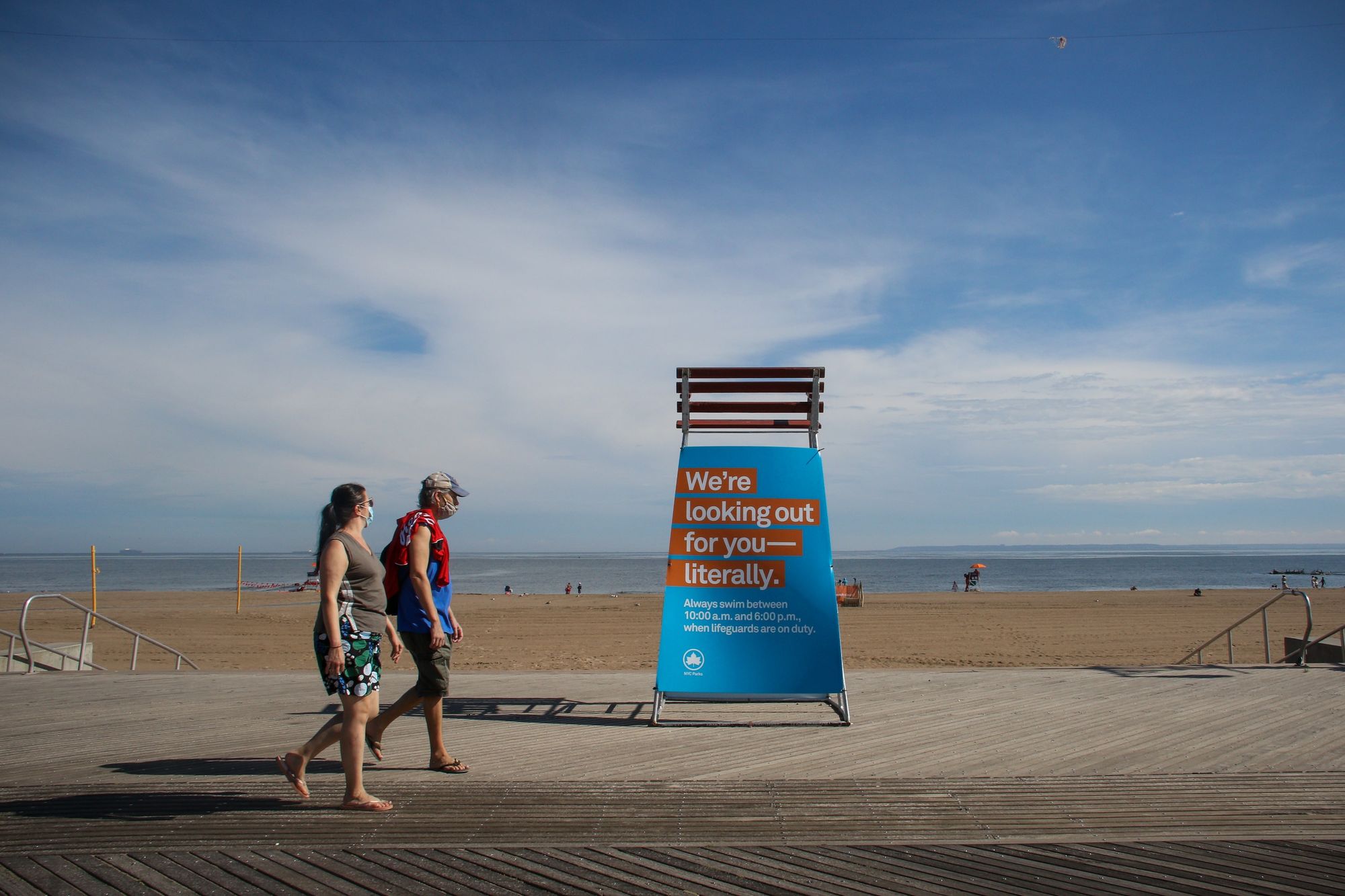Stay Hydrated And Check On Your Neighbors In This Heat


BROOKLYN – It’s hot out there. Today may feel as high as 100F, even while our thermometer records just 93F this afternoon. There is a heat advisory and Mayor Bill de Blasio this morning advised New Yorkers to stay hydrated and cool.
“So everyone, remember, as we get into these very hot temperatures, take it seriously. Do not minimize the challenge. Stay hydrated, stay cool. When you can, stay in air conditioning, check on your neighbors,” de Blasio said at his press conference. “If you know there’s a neighbor who might be a little more vulnerable, a senior or someone with a health condition that might make them more vulnerable, check in on them, make sure they have enough water or anything they need.”
He reminded that 160 cooling centers will be open all throughout the city– with social distancing rules of, course, and that there are also 230 cooling & misting locations in most heat-burdened communities, 300 fire hydrants opened, and 650 spray showers in NYC parks.
“They’ll be smart in the terms, the way they run them,” he said. “There’ll be social distancing, face coverings within the cooling centers, but they’ll be available to anyone who needs them for free.”
Here’s how to stay cool and check on your neighbors:
- Keep in touch by phone at least twice a day during heat waves. Avoid in-person visits to protect your health and the health of others.
- Seniors and others who may be sensitive to extreme heat should contact friends, neighbors, or relatives at least twice a day during a heatwave.
- In New York City, most heat-related deaths occur after exposure to heat in homes without air conditioners. Air conditioning is the best way to stay safe and healthy when it is hot outside, but some vulnerable people do not have an air conditioner or do not turn it on when they need it. Encourage them to use air conditioning. Help them get to an air-conditioned place if they cannot stay cool at home. Make sure they are drinking enough water.
- Never leave children, pets, or those who require special care in a parked car during periods of intense summer heat.
- Heat illness is serious. Prolonged exposure to the heat can be harmful and potentially fatal. Call 911 if you or someone you know shows signs or symptoms of heat illness, including headache, lightheadedness, muscle cramps, nausea, and vomiting.
- New Yorkers can beat the heat by obtaining a spray cap from their local firehouse. Applicants must be 18 years or older and complete a form to obtain a hydrant cap. The improper opening of fire hydrants wastes 1,000 gallons of water per minute, causes flooding on City streets, and can lower water pressure to dangerous levels and hamper the ability of FDNY to fight fire safely and quickly.
- Cool It! NYC is a citywide plan to increase the number of cooling features available to the public during heat emergencies, particularly in neighborhoods that face the dangers of high heat.
According to Con Edison, “The heat, humidity and increased demand for electricity to power air conditioners can cause cables to overheat and lead to outages. The coming days could also bring thunderstorms, which can affect the overhead delivery system and cause outages.
Here are some ways you can save energy during the heat:
- Make sure air conditioner filters are clean so the units will run at peak efficiency;
- Set thermostats to the highest comfortable temperature. Each degree lower increases cooling costs;
- If you have a room air-conditioning unit, close off the rooms not being used; if you have central air, block the vents in unused or vacant rooms;
- To reduce heat and moisture in your home, run appliances such as ovens, washing machines, dryers and dishwashers in the early morning or late at night when it’s generally cooler outside. Use a microwave to cook, if possible;
- Keep shades, blinds and curtains closed. About 40 percent of unwanted heat comes through windows. Simply drawing blinds and curtains, which act as a layer of insulation, can reduce heat in your apartment or home;
- Turn off air conditioners, lights and other appliances when not at home and use a timer to turn on your air conditioner about a half-hour before arriving home.
To find your nearest cooling center, click here. For more information, you can call 311 or visit the city website here.



